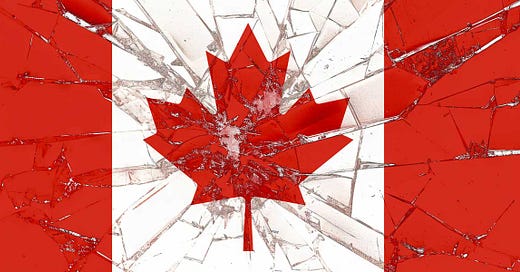We rarely run pieces this long. But today’s investigation—the story of how antisemitism became deeply embedded in Justin Trudeau’s Canada—called for it. This is a piece worth reading carefully. It is relevant not just to our many Canadian readers, but to anyone invested in the future of the West. —Bari Weiss
‘The Denial Is What’s Painful’
For Sarah Rugheimer, a professor of astronomy at York University in Toronto, the first sign of the virulent strain of antisemitism now embedded in Justin Trudeau’s Canada appeared on a lamppost.
It was a few weeks after the Hamas massacre of last October 7. Rugheimer, 41, was walking in a park near her home in the city’s quiet Cedarvale neighborhood when she saw a poster of the Israeli hostage Elad Katzir, a 47-year-old farmer from Kibbutz Nir Oz, covered with swastikas.
In the days that followed, as the war raged in Gaza, swastikas turned up all over Cedarvale. They also started appearing on the York campus, where Rugheimer serves as the Allan I. Carswell Chair for the Public Understanding of Astronomy. As fall turned to winter, a swastika showed up in the snow outside the campus building where she works.
An astrophysicist with a particular interest in the origins of life on Earth and the possibility of life on other planets, Rugheimer tended to confine her worldly concerns to scientific matters. So the swastikas came as a shock. But worse was to come.
She grew up in Montana, and her academic career took her around the world—from a PhD in astronomy and astrophysics at Harvard University to Scotland, England, and now Canada. But until taking up her post at York University two years ago, Rugheimer said she’d never encountered any overt antisemitism. Nor had she given much thought to her identity as a Zionist: Like the vast majority of Jews around the world, Rugheimer believes in Israel’s right to exist.
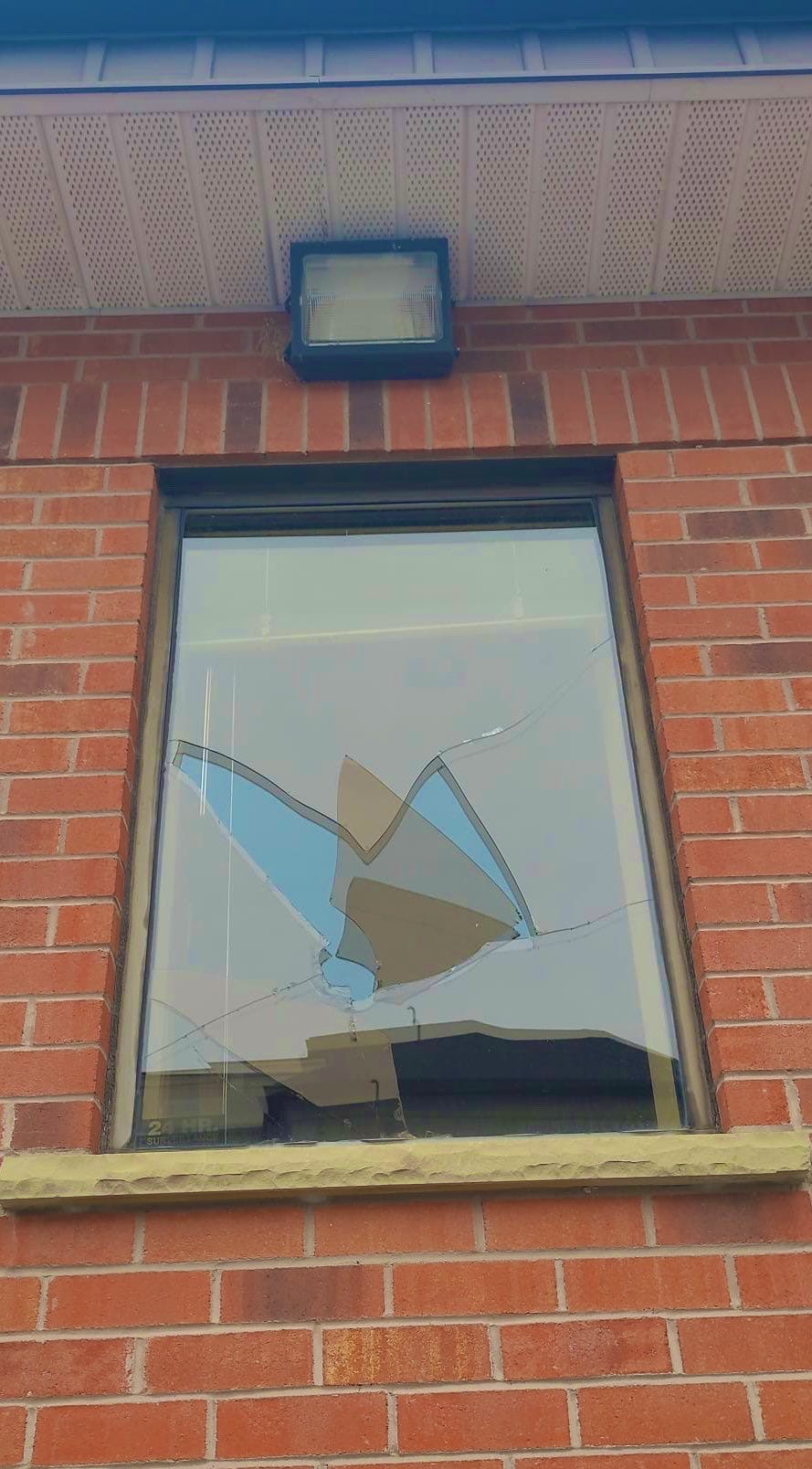
Jew-hatred was a phenomenon of the fringes, she reckoned. “It wasn’t on my radar,” she told me. Now, it’s everywhere. “Every week there is a major incident in Canada, and multiple minor ones every day in my neighborhood.”
It was what was happening inside her university that disturbed her the most.
York’s student unions issued a declaration just after the attack calling the barbarism of October 7 a “justified and necessary” act of resistance against settler colonialism, genocide, and apartheid. The student groups found widespread support among York’s professors—some of whom Rugheimer considered friends.
A politics department faculty committee demanded the university enforce a definition of “anti-Palestinian racism” that encompassed any expression of sympathy for the right of Israelis to exist within their own state: “Zionism is a settler colonial project and ethno-religious ideology in service of a system of Western imperialism that upholds global white supremacy.”
She was shocked by the declarations, and the defaced posters, and the swastikas. But for Rugheimer there was something worse. “The denial is what’s painful,” Rugheimer said. The denial of the rapes and savagery of October 7, 2023. The denial of the pervasive antisemitism in “anti-Zionist” polemics. The denial of Jewish history itself. “Reasonable people can disagree about what to do in an intractable conflict, but the denying of what should be uncontroversial facts makes it impossible to have hope.”
This sort of despair has become a feature of everyday life for Jews across Canada who are experiencing open hatred—and yet are living under a government that appears either blind to it, paralyzed by it, or indifferent to it. Law enforcement in Canada is not blind. Quite the opposite. Officers want to do their jobs. What they say is that they lack the moral support from the political class to enforce the law. And that they cannot keep up with the volume of hate crimes—crimes that arise from a widespread ideology that has normalized the idea that “Zionists” anywhere are a fair target for attack.

Perhaps nothing captured Canada’s dark new reality better than a split-screen story from late last month.
On November 22 in Montreal, at the 70th annual session of the NATO parliamentary assembly, rioters organized by the organizations Divest for Palestine and the Convergence of Anti-Capitalist Struggles wreaked havoc on the city. They ignited smoke bombs, threw metal barriers into the street, and smashed windows of businesses and the convention center where the NATO delegates were meeting. The rioters torched cars. They also burned an effigy of Israeli prime minister Benjamin Netanyahu.
While Montreal burned, Trudeau was dancing and handing out friendship bracelets at a Taylor Swift concert in Toronto. It took 24 hours for him to weigh in with a single tweet.
‘It Was Like a Dam Burst’
The impression that the violence unfolding around them is somehow invisible to the state responsible for their protection has overwhelmed not only relative newcomers to Canada like Rugheimer, but also Jews who have lived in Canada for decades. People like Robert Krell, 84, the former director of postgraduate education in the Department of Psychiatry at the University of British Columbia.
A pioneer of Holocaust education in Canada and a specialist in survivor trauma, Krell immigrated to Canada at the age of 11, after having been hidden by a Catholic family during the Nazi occupation of Holland. Krell was not as shocked by the unspeakable barbarism of the Hamas massacre of October 7 last year as by the jubilation the atrocities elicited from within the “progressive” milieu across Canada—and by the total silence from the “social justice” scene.

On Sunday, October 8, activists affiliated with the terrorist-designated Popular Front for the Liberation of Palestine were already shouting their happiness into megaphones to a crowd at the steps of the Vancouver Art Gallery, only a few minutes’ drive from Krell’s home. “We are calling on those in so-called Vancouver to uplift and honor the resistance,” they said. “Show solidarity and celebrate the steps towards liberation!”
Scenes like these repeated themselves in cities across Canada—all the way to St. John’s, Newfoundland.
“On October 7 I was horrified,” Krell told me. “I was shocked to the core by the cruelty, the rapes, the mutilations, the killing of children, the gouging of eyes . . . but I could believe it.”
What he found impossible to fathom was what he saw on October 8, and in all the days that followed.
“It was like a dam burst. I can’t describe the emotional blow. I guess I thought there would be a cry of outrage about what happened, you know, from the human rights people, Black Lives Matter people, the MeToo people. I shouldn’t have been surprised, but I just couldn’t grasp the concept, that when people heard and saw what had been done to those Jews, there was nothing except celebrations of Hamas as liberators.”
Americans are familiar with the pattern that has been repeated at dozens of Canadian university and college campuses—the “pro-Palestinian” occupations, encampments, manifestos, disturbances, and explicit celebrations of the October 7 “resistance.” In Canada, however, the sociopathology that shocked Rugheimer and Krell is by no means confined to the extremes of campus politics or the rantings of far-left activist groups.
Rather than discovering how torn the fabric of their society has become, Canadian Jews are being forced to come to terms with just how deeply antisemitism has been woven into it.
This is not a matter of anecdote or impression.

Last month, a report by Israel’s Ministry for Diaspora Affairs and Combating Antisemitism found a 670 percent increase in antisemitic incidents in Canada since October 7, 2023, including “violent attacks such as shootings targeting Jewish institutions and arson attacks targeting schools, synagogues, and other community institutions.” There are about 40 million Canadians and roughly 350,000 of them are Jewish—representing less than 1 percent of the country’s population.
“Most Canadian Jews feel unsafe and victimized,” the University of Toronto sociologist Robert Brym concluded in an in-depth attitudinal survey of Canadians, undertaken in collaboration with EKOS Research, published earlier this year. “They perceive a rise in negative attitudes toward Jews in recent months and years. Most doubt the situation will improve.”
Going by the routine occurrences of antisemitic violence and intimidation, it’s easy to see why.
Since last October 7, there have been several drive-by shootings at Jewish schools in Montreal and Toronto. A coordinated bomb threat targeted more than 100 Jewish institutions from Halifax to Victoria. Synagogues in British Columbia and Quebec have been firebombed. One synagogue in Toronto, Kehillat Shaarei Torah, has been vandalized seven times since April—its doors and windows smashed; rocks thrown through the windows. The most recent attack happened just last week.
Jewish businesses across the country are routinely vandalized. Jews are besieged by “pro-Palestinian protesters” in their own neighborhoods. Jewish parents worry about sending their children to kindergarten. Jewish university students from one end of the country to the other report being afraid to attend classes.
Montreal’s McGill University was perhaps the most dramatically disrupted among Canada’s universities over the past year. A focal point for explicitly pro-Hamas demonstrations and “teach-ins,” the encampment at McGill lasted well after the end of this year’s spring semester, right through to a “summer camp” to teach “anti-colonial struggle” and to transform McGill’s “space into one of revolutionary education.” Posters for the camp featured keffiyeh-shrouded Palestinians, with machine guns, reading books.
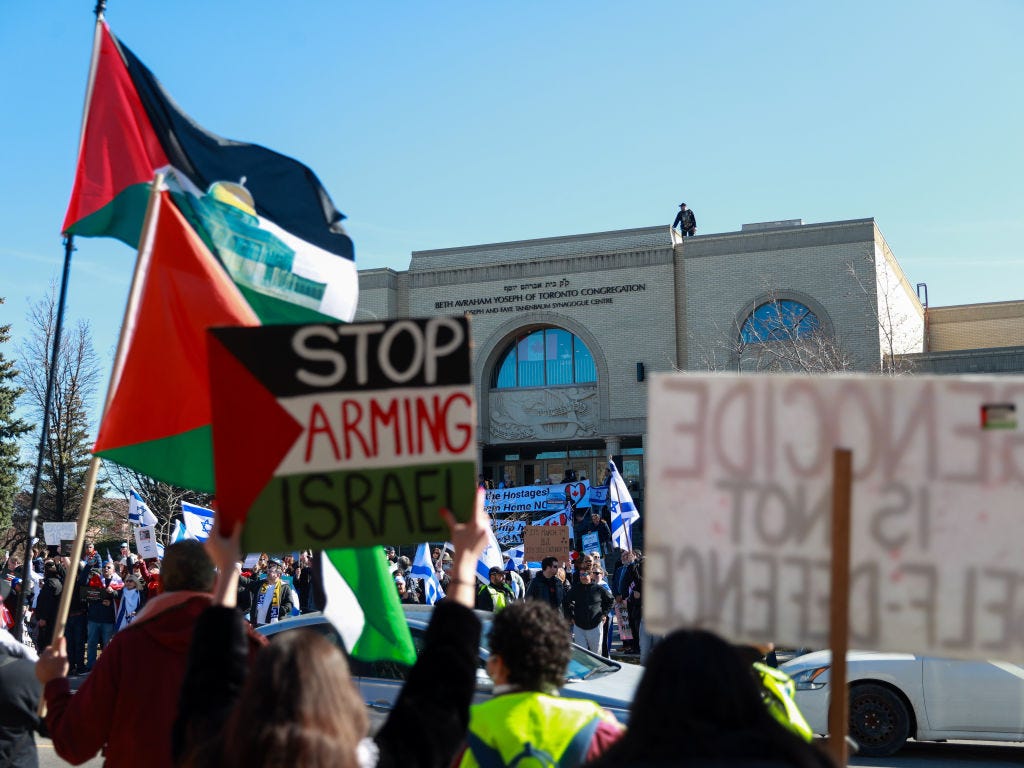
Long before October 7, a Canadian variant of antisemitism had already burrowed deep into the country’s political culture. The world’s first “Israeli Apartheid Week” was organized in Toronto 20 years ago, an annual event that eventually spread to more than 60 cities around the globe.
By the time a collective of Palestinian organizations launched the global Boycott, Divestment, Sanctions strategy in 2005—with the goal of eliminating Israel as a Jewish state—a BDS movement had been already flourishing in Toronto for three years. Israel’s Reut Institute was already calling Toronto an important global “hub” of efforts to delegitimize Israel 15 years ago.
More recently, Toronto’s reputation has been overtaken by Montreal, which is fast becoming known as “North America’s most dangerous city for Jews.” At the city’s Concordia University, the marketing professor and behavioral scientist Gad Saad said the city’s institutions of higher learning have become “cesspools” of antisemitism. Saad said his place in the university community had become so precarious that he took an unpaid leave to join Northwood University in Michigan.
Perhaps to those outside of Canada this sounds like an overreaction. But consider what happened on November 24 to Rabbi Adam Scheier and his daughters when they headed to downtown Montreal to go shopping. While inside a cafe, they heard sounds of an anti-Israel protest. Scheier, who was wearing his kippah, grabbed his phone to document the event. But within moments, a police officer singled him out and asked him to move. His mere presence as a visible Jew was perceived as provocative.
“This is unconscionable. We’re getting the message from society that either we will not or we cannot protect you from the mob that now rules our streets,” Scheier said. “When I came to Montreal 20 years ago, it was a very different place than it is today. We used to tell visitors that you could wear your kippah and walk from one end of Sherbrooke to the other across the entire city and never for one moment have an instant of fear. And that is most certainly no longer the case.”
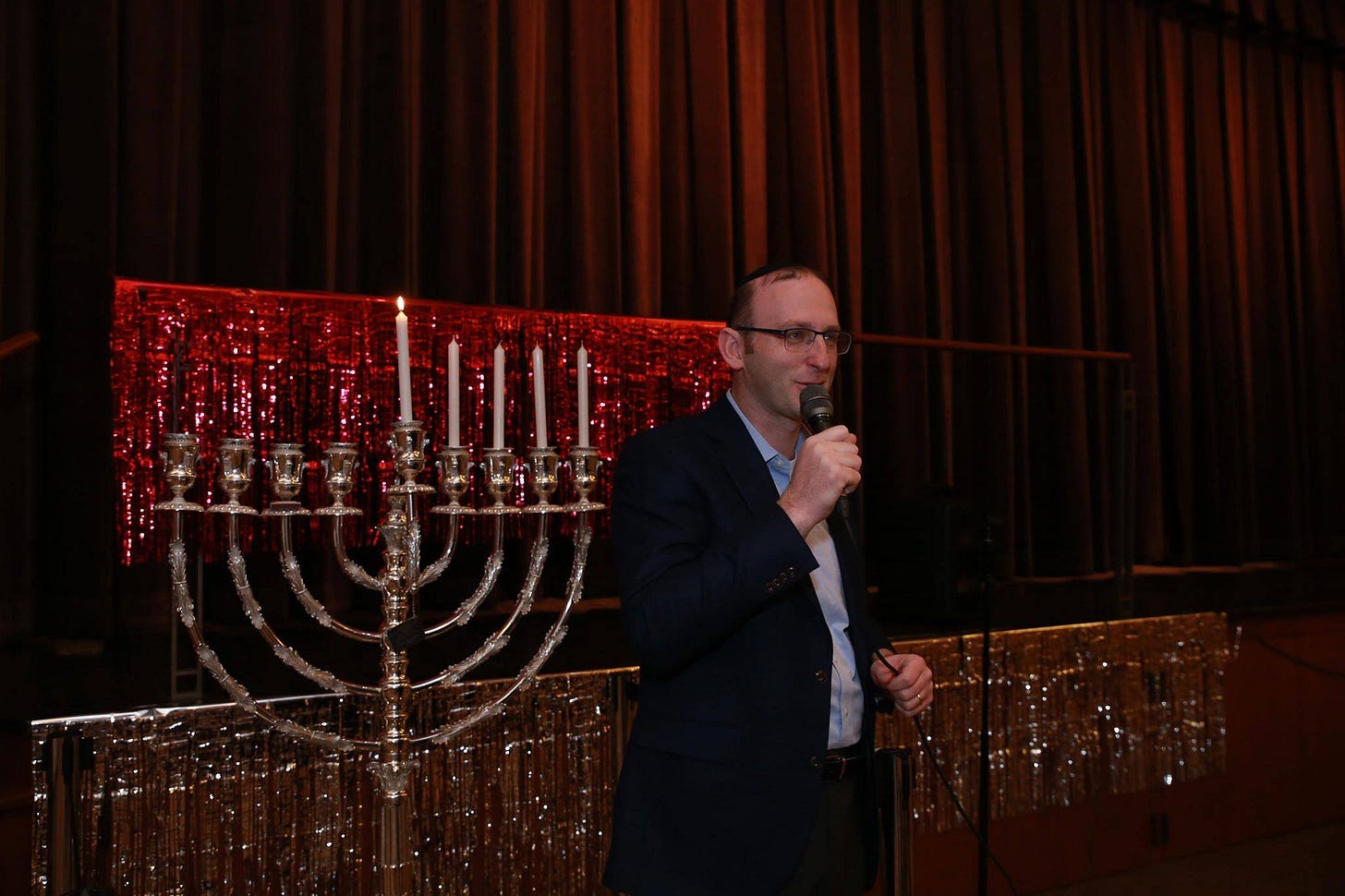
Almost none of these verbal or physical assaults are coming from white supremacists or antisemites of the right-wing variety. They are being carried out by self-described progressives, Arabs, and, often, recent immigrants who are operating inside an ideological framework of “settler colonialism,” which casts Canada, the United States, Australia, and, most of all, Israel, as irredeemably illegitimate constructs of imperialism, capitalism, genocide, and racism. It’s an ideology that has found a comfortable home in Trudeau’s Canada.
The World’s First Post-National State
Since 2015, when Trudeau’s Liberals were swept into office on a wave of progressive exuberance, the anti-Zionist strain of antisemitism has become a well-established radical-chic feature of the Canadian political scene. It is reinforced by “intersectional” alliances that rely on anti-Zionism as both an alibi for antisemitism and a marker of progressive bona fides.
The son of the 1960s-era jet-setter playboy prime minister Pierre Elliott Trudeau, Justin Trudeau told The New York Times Magazine during his first week as prime minister that he intended to redefine what it means to be Canadian. The country he said he imagined was a country with “no core identity, no mainstream,” a country that should be understood as “the first postnational state.”
U.S. president-elect Donald Trump, while campaigning in 2015, presented the world with a different view. He famously floated the idea of “a total and complete shutdown of Muslims entering the United States until our country’s representatives can figure out what is going on.”
Trump’s executive order 13769, titled “Protecting the Nation from Foreign Terrorist Entry into the United States”—the so-called “Muslim ban”—came into effect on January 27, 2017. The following day, Trudeau tweeted: “To those fleeing persecution, terror & war, Canadians will welcome you, regardless of your faith. Diversity is our strength.”

From the outset, Trudeau’s immigration policy set out to welcome unprecedented numbers of immigrants, temporary workers, and foreign students. Meanwhile, Muslim advocacy organizations quickly rose to unprecedented influence in Trudeau’s Canada.
The Muslim Association of Canada, for example, has taken in millions of dollars from the federal government in “anti-hate” funding and other subsidies in recent years. Yet this group explicitly derives its guidance from the wellspring of Islamism, the Egyptian Muslim Brotherhood, the parent organization of Hamas. The Muslim Association of Canada routinely invites foreign speakers who deliver antisemitic, misogynistic, and homophobic sermons.
There are now an estimated 1.8 million Muslims in Canada—twice as many as 20 years ago. Brym’s study found that more than 40 percent of the Muslims surveyed said that suicide bombing targeting Israeli citizens is justified. More than a third said Jews are not entitled to a state of their own. A majority—54 percent—described Israel as an apartheid state. A full 60 percent said Zionism is racism.
Casey Babb, a national security expert, said Canada’s Muslims should not be simply tarred with the brush of Judeophobia. But the phenomenon of fashionably “anti-Zionist” antisemitism has merged seamlessly with constituencies of newcomers from cultures where antisemitism is deeply rooted, Babb said, referencing Middle Eastern countries that once had ancient and thriving Jewish communities, now completely purged by pogrom and massacre.
“It would be insanely naive to think people would come here and abandon long held, pre-existing, religiously motivated, and culturally ingrained beliefs about Jews just because they’re now in Canada,” Babb told me. They haven’t. And those toxic ideas about Jews have merged with critical-theory leftism to bring the country to a frightening juncture. Canada has now entered what Babb called “a dark and terrible period of systemic, normalized, and institutionalized Jew-hatred.”
The statistical evidence suggests that Babb is correct.

In Canada, a crime motivated by racial, ethnic, or religious hatred is confirmed as a hate crime only at sentencing, after conviction, based on evidence at trial. Statistics Canada reports that Canada’s Jews were the targets in 70 percent of religiously-motivated hate incidents reported last year. That’s four times as many incidents as those in which Muslims were targeted, who now number 1 in 20 Canadians. Even so, it’s a rare thing for a Liberal politician to utter the word antisemitism in any statement without saying Islamophobia alongside it.
It’s hard to know who exactly is even in Canada these days.
A growing public uproar over what even the Trudeau government calls an “out of control” system has caused Ottawa to slightly reduce the targets for the flow of migrants. Even so, nearly five million “temporary” residents are expected to see their visas expire in the coming 12 months, and it is not at all clear how many can be expected to leave.
Immigration, Refugees and Citizenship Canada merely guesses at the number of “undocumented workers” who have already overstayed their visas, suggesting the number could be as high as 500,000. One number Ottawa is fairly certain about: 28,000. That’s how many failed refugee claimants are facing warrants to be deported, their whereabouts unknown. Roughly 250,000 refugee-status claimants are already in Canada, and it now takes 44 months for a refugee claim to be dealt with after being referred to the board.
A related data point: Last year, a federal audit found that 7,000 people who applied for admission to Canada were red-flagged by the Canada Border Services Agency and other security agencies for serious offenses, including espionage, war crimes, and terrorism. Immigration authorities let roughly half these people in anyway.
There were more than a million foreign students in Canada in 2023. After a series of scandals, public uproars and by-election losses this year in “safe” Liberal electoral districts, the Trudeau government has promised to “cap” the number of new student visas at 437,000 for 2025. But it’s a bit late.
The Police Can’t Keep Up
Over the past year, as violent anti-Israel protests and attacks on Jews have become a regular feature of Canadian life, police have said they cannot keep up.
In August this year, the Canadian Association of Chiefs of Police said the disturbances have placed an unsustainable strain on police services across the country—and matters are made worse by the absence of “moral and financial support” from all levels of government. Association president Thomas Carrique said police departments are struggling to cope with the increase in the “frequency, duration, complexity, risks, and threats of these public assemblies in cities across our country.”
Between last October 7 and July of this year, Toronto police attended 1,556 calls that resulted in 130 arrests involving 314 charges related to what the police say were hate crimes. Roughly half the hate-crime calls to Toronto police related to antisemitism. The charges involved mostly unprovoked assault, uttering threats, and mischief to property.

Going by the Toronto Police Service’s classification system, of all the hate crimes since October 7 that involved religion, 80 percent involved an “anti-Jewish occurrence.” There are only about 120,000 Jews among the roughly three million people who live in Toronto.
In Montreal, in just the three months following October 7, police reported 132 “hate incidents” targeting the city’s Jewish community, 10 times as many reported hate crimes as the entire year of 2022. There are only about 90,000 Jews among Montreal’s 1.8 million people.
So far this year, Ottawa police report 225 hate incidents, about a third of them directed at the city’s Jewish community, which numbers about 14,000 people—less than two percent of Ottawa’s population. Half as many hate incidents were reported among Ottawa’s vastly larger Muslim community, which accounts for nearly 10 percent of the city’s residents.
In the 11 weeks following the October 7 massacres in Israel, Vancouver police reported 33 antisemitic “hate incidents” and laid charges in 17 criminal cases involving anti-Israel protests, including assaults on police officers and obstructing justice. Before the year was over, there were 80 such protests in Vancouver, resulting in 1,800 police overtime shifts and $2.5 million in costs.
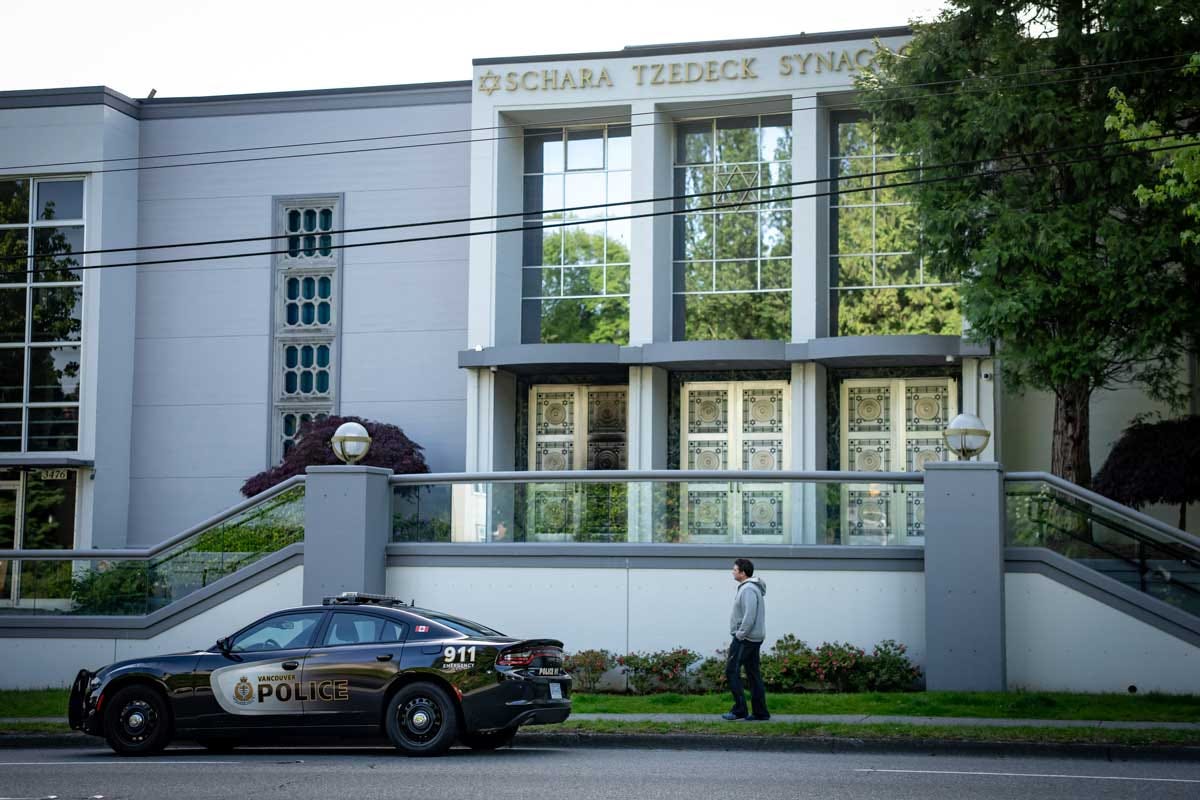
The pattern is the same everywhere in this country: in Windsor, Calgary, Edmonton, Victoria, and on and on.
A growing number of protests have ended in violence or with threats of violence, Carrique said, and it hadn’t helped that Trudeau’s government was determined to swell Canada’s population as a means to boost the country’s gross domestic product. Carrique said the effort had drawn newcomers from cultures where violence is an “acceptable vehicle for social change.”
Back in April, former Royal Canadian Mounted Police counterterrorism investigator John Mecher told me that Ottawa needs to start paying attention to the implications of routine mass protests where acts of terrorism are glorified as righteous and legitimate acts of “resistance.”
Back in 2006, Mecher was on the RCMP team that broke up a terrorist cell inspired by 9/11 known as the Toronto 18, which had plotted to commit beheadings, the bombing of the Toronto Stock Exchange, and an armed assault on the House of Commons and other targets. The investigation resulted in 11 convictions.
Mecher said the current phenomenon of “pro-Palestinian” activism presents a far greater risk of recruitment to terrorism than was presented by the radical activist milieu following 9/11. “Back then, you simply did not see people running through the streets saying, ‘I’m an al-Qaeda supporter, I love bin Laden.’ ”
But since last October 7, tens of thousands of protesters have been rallying in the streets at events where unambiguous praise for terrorist groups like Hamas and Hezbollah is routinely offered up in speeches by rally organizers, all in the guise of “pro-Palestinian” solidarity.
“It’s very different now,” Mecher said. “With the Toronto 18, we had a small group of people, some of whom had known each other for a while, and they built their little group, and they did it in secret. They didn’t have these massive demonstrations where like-minded people can easily identify one another.”
There have already been some very close calls.

Last December, two Ottawa youths were arrested on terrorism charges involving a bomb plot intended to target the local Jewish community. One of the boys’ fathers said the family had been concerned that the boy was being “radicalized” online.
On July 22 this year, a Canadian from Airdrie, Alberta, arrived at a checkpoint outside Netiv Ha’asara, a village in southern Israel, and lunged at a security detail with a knife, shouting “Free Palestine.” Zachareah Adam Quraishi, 21, is believed to have been “radicalized” by the anti-Israel hysteria in Canada. He was shot and killed.
Also in July, acting on a tip from French authorities, the RCMP in Richmond Hill, Ontario, arrested 62-year-old Ahmed Fouad Mostafa Eldidi and his 26-year-old son Mostafa on six terrorism offenses related to an ISIS-inspired plot to carry out a mass-casualty attack. The Eldidis had passed several Canadian Border Security Agency and Immigration and Citizenship screenings to enter Canada, even though the senior Eldidi allegedly appears in an ISIS video from 2015 dismembering a captive with a sword. The case remains before the courts.
On September 4, as part of a complex cross-border investigation, a 20-year-old foreign student from Pakistan was arrested in Ormstown, Quebec, as he was making his way to the U.S. border. According to the U.S. Department of Justice, Muhammad Shahzeb Khan, also known as Shahzeb Jadoon, was headed to New York to carry out a mass slaughter of Jews on behalf of ISIS to coincide with the October 7 massacres in Israel.
While he was planning his attack, Khan was also applying for refugee status. In intercepted communications, Khan said the plan was to stage “the largest attack on U.S. soil since 9/11.” The attack was to be carried out with AR-15-type assault rifles and “some good hunting knives . . . so we can slit their throats.”

Liberal Politicians and Terror Supporters
Despite the palpable fear that one of these plots will not be foiled, it is only when some embarrassment finds its way into the press that the Trudeau government takes note.
Four years ago, to choose one example, Nisam Siddiqui, a senior advisor in the Privy Council Office, was found to be using his Facebook page to circulate claims that Jews were Nazi collaborators and that Israel was a pedophile-harboring, racist apartheid state. The Privy Council—a parliamentary institution designed to provide discreet top-tier advice to the prime minister and his cabinet—claimed it was taking steps to deal with Siddiqui.
But he was still there in the immediate aftermath of last October 7’s atrocities, accusing Canada of helping Israel commit war crimes to maintain its “brutal racist apartheid occupation” of Gaza.
Two years ago, Diversity and Inclusion Minister Ahmed Hussen personally endorsed a $133,000 “anti-racist action” grant to a man named Laith Marouf for a series of countrywide workshops. At those workshops, Marouf would teach federally regulated broadcasters about diversity and inclusion. An interesting choice considering that Marouf is a Beirut-based supporter of Bashar Assad—the ex-Syrian leader who butchered hundreds of thousands of his own people. Marouf is also a regular contributor to the Kremlin’s disinformation platform Sputnik and Tehran’s English-language propaganda platform PressTV.
After the Canadian press got wind of it, several of Trudeau’s ministers said they were unaware of Marouf’s background, even though his antisemitic outbursts have been notorious for 20 years. (Since 2015, Marouf has pulled in close to $600,000 from the federal government.)

Around the same time, Salma Zahid, the Liberal chair of the all-party Canada-Palestine Parliamentary Friendship Group, organized a reception on Parliament Hill to mark the International Day of Solidarity with the Palestinian People.
Among the guests was Nazih Khatatba, whose newspaper, al-Meshwar, was already infamous for referring to the Holocaust as the “Holohoax” and publishing claims that Jewish bankers financed the Nazi Party. Another was the secretary of the Fatah Movement in Canada, Nabil Nassar, best known for celebrating the 1972 massacre of Israeli athletes at the Munich Olympics and praising the Fatah terrorist Dalal al-Mughrabi, who participated in the murder of 38 Israeli citizens in the 1978 Coastal Road massacre north of Tel Aviv.
The meeting was also notable for Green Party leader Elizabeth May’s declaration to Mona Abuamara, the chief representative of the Palestinian General Delegation: “I take my marching orders from the permanent representative of Palestine to Canada.”
When reporters asked Zahid about the attendance at an official function of people who explicitly supported terror, Zahid said she couldn’t be expected to vet all those who were invited.
In August, it was only at the last minute that the Liberal cabinet backed away from the appointment of Birju Dattani to Canada’s top human rights post—chief commissioner of the federal Human Rights Commission. The reversal came only after the Centre for Israel and Jewish Affairs said Dattani had compared Israel to Nazi Germany and likened Palestinians to prisoners of the Warsaw Ghetto.
Last month, the leader of a group of anti-Israel protesters who defied police and tried to take over an intersection near Ottawa City Hall turned out to be Sarah Wazzi-Moukahal, a policy officer with Immigration, Refugees and Citizenship Canada.

Then there has been Trudeau’s response to Israel since October 7.
During a visit to Washington, D.C., in November 2023, Trudeau was asked whether or not he supported a ceasefire. “We need to see a cease—we need to see a humanitarian pause so we can flow—we need ceasing of the levels of violence that we’re seeing,” Trudeau said. By the next month, the country was voting in favor of a UN resolution calling for an “immediate humanitarian ceasefire.”
That was just the beginning.
In March, the Liberals placed a halt on all arms exports to Israel. (It was mostly symbolic: Canadian military-related exports to Israel amounted to less than $30 million in 2022.) But even that wasn’t enough. Foreign Affairs Minister Mélanie Joly later announced that Ottawa would also block a U.S. shipment of ammunition from General Dynamics to the Israel Defense Forces. (The ammunition is manufactured by a division of General Dynamics in Quebec.)
To former New Democratic Party leader Thomas Mulcair, Joly’s argument that Israel has a right to defend itself but should be denied the arms necessary to its defense is “utterly incomprehensible” and “indecipherable.” But Mulcair said Joly made sense of it when he spoke with her, this way: “Thomas, have you seen the demographics of my riding?”
The demographics of Joly’s Ahuntsic-Cartierville riding are shifting quite a bit, owing to Trudeau’s open-borders policy, but by 2021, Statistics Canada had already noted that of the riding’s 118,000 residents, 44,195 were immigrants. People who identify as visible minorities numbered 48,120 people; 21,620 were Muslims, among whom 16,305 were Arabs. Statistics Canada counted only 225 Jews in the riding in 2021.
Said Mulcair: “I was astonished to hear such a candid admission that very local politics were playing such a role in shaping Canada’s foreign policy on this highly complex and sensitive issue.”
Not all Canadians are happy with this state of affairs. In an Ipsos public opinion poll conducted over the summer, 70 percent of respondents said they agreed with the proposition that “Canada is broken.” It’s an idea that has been deftly adopted by Conservative leader Pierre Poilievre. A related poll released around the same time showed that 68 percent of Canadians want Trudeau gone.

In two recent elections in historically “safe” ridings for the party, the Liberal candidates were trounced. This never happens in Canada: The Conservatives are running strongest among trade union members—the NDP’s traditional base—and in the 18-25 age bracket, which is the demographic that pushed Trudeau over the top nine years ago. Poilievre’s Conservatives are now polling ahead of the Liberals by a 2-to-1 ratio, signaling a Liberal wipeout in next year’s election.
‘Anti-Palestinian Racism’
In Liberal circles, a new ideological construction is gaining ground—one that threatens to destroy all that it touches in much the way Critical Race Theory has done. That new idea is “Anti-Palestinian Racism,” defined in such a way as to place Zionism—that is, the view held by the vast majority of Jews—beyond the pale of polite society, and potentially beyond the bounds of Canadian hate speech law.
According to the Arab Canadian Lawyers Association, anti-Palestinian racism is defined as follows: “Anti-Palestinian racism is a form of anti-Arab racism that silences, excludes, erases, stereotypes, defames, or dehumanizes Palestinians or their narratives. Anti-Palestinian racism takes various forms including: denying the Nakba and justifying violence against Palestinians; failing to acknowledge Palestinians as an Indigenous people with a collective identity, belonging and rights in relation to occupied and historic Palestine; erasing the human rights and equal dignity and worth of Palestinians; excluding or pressuring others to exclude Palestinian perspectives, Palestinians, and their allies; defaming Palestinians and their allies with slander such as being inherently antisemitic, a terrorist threat/sympathizer or opposed to democratic values.”
It is worth reading that twice. It is a definition of racism that makes the most fundamental defense of Israel’s existence racist. It renders it impossible to describe antisemitism without running the risk of being described as racist.
Michal Cotler-Wunsh, Israel’s special envoy for combating antisemitism, has some special insight into Canada. The Jerusalem-born 53-year-old former member of the Knesset spent about half her life in Canada. She went to school in Montreal, completed a law degree at Hebrew University, then came back to Canada for a master’s degree. A decade later, she returned to Israel.
Anti-Palestinian racism is a legalistic rendering of a vulgar slogan routinely chanted at anti-Israel marches across Canada over the past 10 months: “All the Zionists are racists.” Cotler-Wunsh points out the obvious: “APR renders anyone who self-defines or who is identified as a Zionist or just believes Israel has a right to exist as a racist.”
What we’re witnessing in Canada is the diffusion of “a very particular kind of antisemitism,” Cotler-Wunsh told me. The country’s susceptibility to the “anti-Zionist” iteration of antisemitism is partly because Canadians have lost the capacity to identify with strongly held national values, Cotler-Wunsh argued. “Canadians aren’t especially patriotic,” she said. “So there’s a ‘live and let live’ idea, but it results in indifference.” And that has allowed antisemitism to course through Canada’s institutional bloodstream, largely unchecked.
Cotler-Wunsh’s adoptive father, Irwin Cotler, is a renowned international human rights champion and Canada’s former justice minister. A tireless advocate for dissidents in Russia, Iran, China, and elsewhere, Cotler served as Canada’s special envoy on preserving Holocaust remembrance and combating antisemitism until just days after October 7.
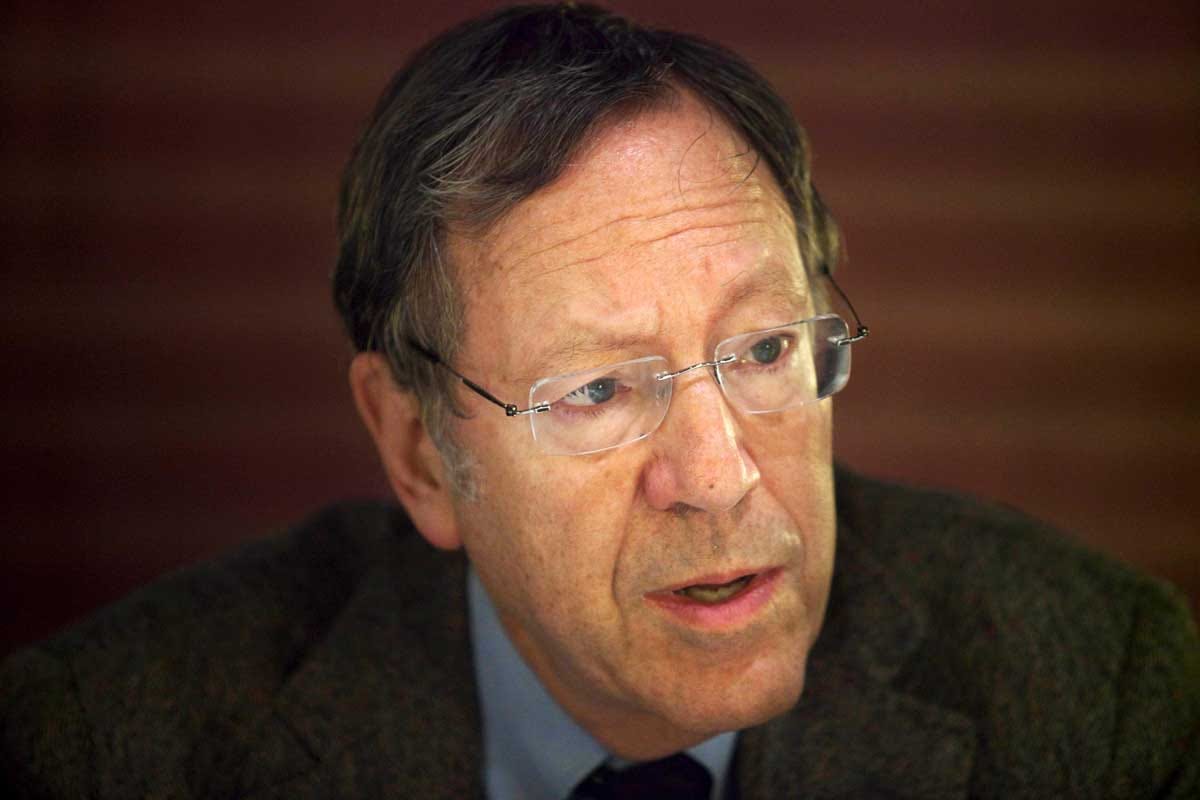
Last December, after he failed to show up at a Toronto event celebrating the imprisoned Hong Kong dissident Jimmy Lai, it was disclosed that Cotler was under 24-hour police protection because of a threat to his life. The assassination plot was hatched in Tehran.
“Seeing that was heartbreaking,” Cotler-Wunsh told me. “The thought that this would happen in Canada, the thought that in this multicultural beacon of dignity for all, that Canada’s former justice minister, a human rights warrior who fought for hundreds of people around the world, is under house arrest—you could say, trapped in his own home—is really heartbreaking.”
Heartbreaking is a word that well describes the way Canadian Jews see their predicament these days. “I have never seen in all my life such a thing, such expressions from people of all ages, such expressions of apprehension, of isolation, insecurity, foreboding, expressed in different ways,” said Cotler, 84, when we spoke last week. “I see it when I meet with students; I see it when I meet with elderly people. I hear, ‘This is not the Canada I know,’ or ‘This is not the Canada I came to.’ Or ‘This is not the Canada I have ever experienced. This is something else.’ And they are afraid to publicly express it.”
In part, that’s because antisemitism is no longer just some protest culture eccentricity. It’s going mainstream, from the bottom to the top.
Consider the fact that the Toronto District School Board has voted to incorporate “Anti-Palestinian Racism” within its overall anti-discrimination strategy. APR has been endorsed by the NDP and championed by Liberal MP Jenica Atwin. Its most senior advocate is the Trudeau government’s own Special Representative on Combating Islamophobia Amira Elghawaby.
Last month. Elghawaby said Trudeau himself had agreed to come up with a definition of APR and put it into practice.
It’s already gotten to the point that if you enter public conversations by saying anything contrary to the APR doctrine, you’d better be very careful. Say anything that contradicts Palestinian narratives, or questions the right of Palestinians to sovereignty in all of “historic” Palestine, or something that could be construed as “denying the Nakba,” and you can end up destroying your political career, no matter how solid your progressive bona fides might be.
This was exactly the fate of Selina Robinson, the popular Minister of Post-Secondary Education in British Columbia’s NDP government.
A target was painted on Robinson’s back last October when she objected to a college professor who had delivered a speech at a Samidoun Prisoner Solidarity Network rally praising Hamas for its “amazing and brilliant” attack on October 7. But it was in January that Robinson’s fate was sealed.
In a panel discussion hosted by B’nai Brith Canada, Robinson had lamented that too many students knew little about the Holocaust and almost nothing about how Israel was brought into being by Jews who built a nation-state from scratch. “It was a crappy piece of land with nothing on it. There were several hundred thousand people,” Robinson said, “but other than that it didn’t produce an economy; it couldn’t grow things, it didn’t have anything on it.”
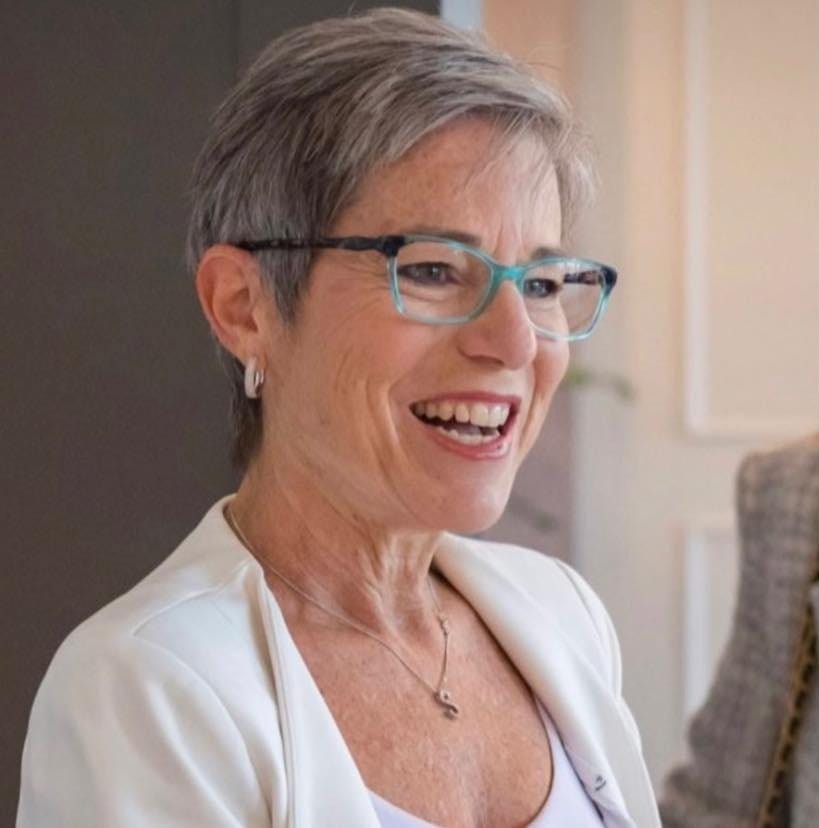
This was true, but it didn’t matter. It was inconsistent with “Palestinian narratives,” so it was “anti-Palestinian racism,” which meant Robinson herself was a racist. British Columbia premier David Eby fired her from cabinet, despite her apologies, on the grounds that what she’d said was irreparably hurtful.
Robinson offered to subject herself to anti-Islamophobia training, but Premier Eby declined her offer when her detractors held it up as further evidence of her racism, because she’d failed to distinguish Islamophobia from anti-Palestinian racism. Robinson then resigned from the NDP caucus.
In Ramallah, Popular Front for the Liberation of Palestine, which the Samidoun Network serves as its primary overseas propaganda arm, declared victory. “This resounding fall of one of the Canadian ministers biased towards Zionism, and the shift in the official Canadian stance on the aggression against the Gaza Strip confirms that the Palestinian cause is present in the conscience of the majority of the Canadian people, and that it means a lot to them,” the PFLP declared.
Robinson told me she’s still trying to sort out what it all means, but one thing seems certain. The broad spectrum of the liberal left, such as it is, has to somehow free itself from the trap of “identity politics,” she said. “At some point, even if things burn to the ground, you still have to rise from the ashes. We need to start thinking about what we can salvage,” Robinson added.
“There are times when even someone like me, who has been around for a while and has seen a lot of stuff, gets despondent,” said Shimon Koffler Fogel, the CEO of Canada’s preeminent Jewish advocacy organization, the Centre for Israel and Jewish Affairs. “But I am as much concerned for society writ large as I am parochially for the Jewish community,” Fogel told me.
“People really fail to understand the nature and the scope of the challenges we’re facing and what we’ve experienced over the past number of years,” he said. “It’s really about the way the fundamental values of Western society are under assault in a way that they never have been. Many of us are sleepwalking through this challenge. I fear that we’re going to wake up in the not-too-distant future and say: ‘What the hell? How did this happen?’ ”
Terry Glavin, a Canadian author and journalist, a columnist with the National Post and senior fellow with the Raoul Wallenberg Centre for Human Rights. He also writes a newsletter called The Real Story.
Rupa Subramanya contributed additional reporting to this piece. Read all of her work for The Free Press here.
To support independent journalism, subscribe to The Free Press:


